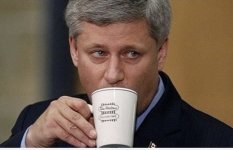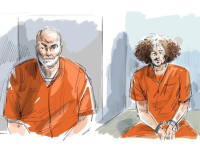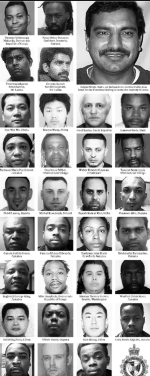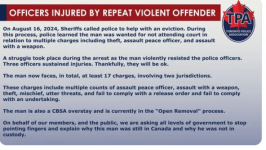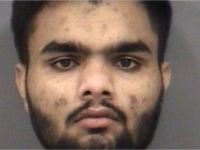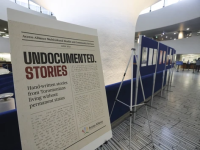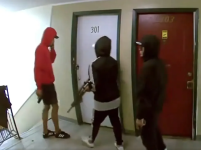Releasing names of 900 alleged Nazi war criminals who fled to Canada could embarrass federal government, bureaucrats told
Large numbers of soldiers from a Ukrainian Waffen SS division fled to Canada after the Second World War.
Author of the article

avid Pugliese • Ottawa Citizen
Published Sep 04, 2024 • Last updated 15 hours ago • 5 minute read
Library and Archives Canada is now reviewing whether to release the names of alleged Nazi war criminals who fled to Canada after the war.
Library and Archives Canada is now reviewing whether to release the names of alleged Nazi war criminals who fled to Canada after the war. Photo by Archive photo
A list of 900 alleged Nazi war criminals who fled to Canada could remain secret as federal officials come under increasing pressure to censor the records because they could prove embarrassing to this country.
Library and Archives Canada in Ottawa consulted in June and July with what it called a “discrete group of individuals or organizations” about whether the list should be made public, according to documents obtained by the Ottawa Citizen.
Those consulted included members of Canada’s Ukrainian community, records show, but Library and Archives Canada, also known as LAC, did not include Holocaust survivors nor Holocaust scholars who had advocated for a full release of the list of alleged Nazi war criminals, Jewish and Holocaust academics say.
Some of the individuals and organizations consulted by LAC argued against releasing any of the information, warning it could be embarrassing or lead to prosecutions of the alleged war criminals.
“A few stakeholders were concerned that the release of the report would result in new legal action (criminal prosecution, citizen revocation, or otherwise) being brought against the individuals named in the report,” a summary of the library’s discussions noted.
Other stakeholders who advised LAC worried the list would embarrass Canada’s Ukrainian community or be used by Russians for propaganda purposes, the records show.
Large numbers of soldiers from a Ukrainian Waffen SS division fled to Canada after the war.
Library and Archives Canada had hoped to release information to the public between Sept. 16 and Sept. 20, but how many names of the alleged Nazi war criminals will actually be made public is not yet known.
The list was part of the 1986 war-crimes commission led by Justice Jules Deschenes. The names were compiled from RCMP files and other documents.
LAC spokesperson Richard Provencher said the organization had received three requests under the Access to Information law for the Deschenes document and as a result “undertook targeted consultations with external stakeholders.”
“As of today, LAC is still refining and concluding its analysis to respond to the ATI requests received,” Provencher added.
LAC would not provide specific details on the individuals and organizations it consulted. It did not respond to questions about whether Holocaust survivors were excluded from the proceedings.
Jaime Kirzner-Roberts of the Friends of Simon Wiesenthal Center for Holocaust Studies in Toronto questioned why survivors of the Nazis’ genocide campaign were not invited by LAC to give their views on whether the list of Nazis and their collaborators should be made public.
“We know many survivors that feel very strongly about this issue and would have wanted the opportunity to speak,” Kirzner-Roberts said. “Why were they not included? Do they not have a right to be heard on questions related to the investigations against Canadians who may have been involved in committing acts of genocide against their families?”
The Friends of Simon Wiesenthal Center for Holocaust Studies was also shut out from attending the advisory meetings and was not aware they had been conducted.
Library and Archives Canada declined to provide a list of the individuals and organizations asked to give advice on whether the names should be released.
Kirzner-Roberts said the federal government needed to stop protecting war criminals and the list should be released immediately.
“The idea that Canadians should be worried about the embarrassment or privacy of war criminals is obscene,” she added. “We know that individuals involved in implementing the genocide of six million Jews during the Holocaust have been living peacefully in Canada for decades and it is well past time that all the facts come to light.”
B’nai Brith, the Jewish advocacy group that has pushed for the release of the records, did not respond to a request for comment. But in a February 2023 submission to the House of Commons committee on Access to Information, B’nai Brith pointed out that the Canadian government’s approach to Nazi collaborators had been marked with “intentional harbouring of known Nazi war criminals” as well as “deliberate inaction.”
In September 2023, Immigration Minister Marc Miller acknowledged “Canada has a really dark history with Nazis in Canada.”
“There was a point in our history where it was easier to get in as a Nazi than it was as a Jewish person,” he said. “I think that’s a history we have to reconcile.”
It has been almost a year since MPs of all parties gave two standing ovations to Yaroslav Hunka, a resident of North Bay, Ont., who was described by then House of Commons Speaker Anthony Rota as a hero.
But news quickly emerged that Hunka had served in a Ukrainian Waffen SS unit.
The incident became an international embarrassment for Canada as Holocaust historians, Jewish groups and the Polish government pointed out that Hunka’s unit had been involved in war crimes, including massacres of women and children. The division was also used by the Nazis to crush a national uprising in Slovakia, again prompting allegations of war crimes.
There is no evidence Hunka, now 99, was directly involved in those incidents.
But the sight of MPs cheering on a Waffen SS veteran caused intense anger among Canadians, according to documents obtained in June by the Ottawa Citizen using the Access to Information law
Holocaust survivors wrote to Prime Minister Justin Trudeau about friends killed by Hunka’s division, the 14th SS Galician, while families of Canadian soldiers killed fighting the Nazis during the Second World War peppered MPs with questions about why they honoured a soldier who had sworn allegiance to Adolf Hitler.
The emails pointed out the stupidity of the parliamentarians for not realizing that Hunka had fought against allied forces during the Second World War.
One Holocaust survivor pointed out to Trudeau that the 14th division of the Waffen SS murdered their friends in Slovakia in late 1944.
The names of those who sent messages were removed from the documents because of privacy rules.
Others questioned how members of the Waffen SS were allowed into Canada after the war or pointed out that other Waffen SS members executed Canadian soldiers they had taken prisoner.
Library and Archives Canada consulted a “discrete group of individuals or organizations” about whether the list should be made public.

torontosun.com

apple.news

